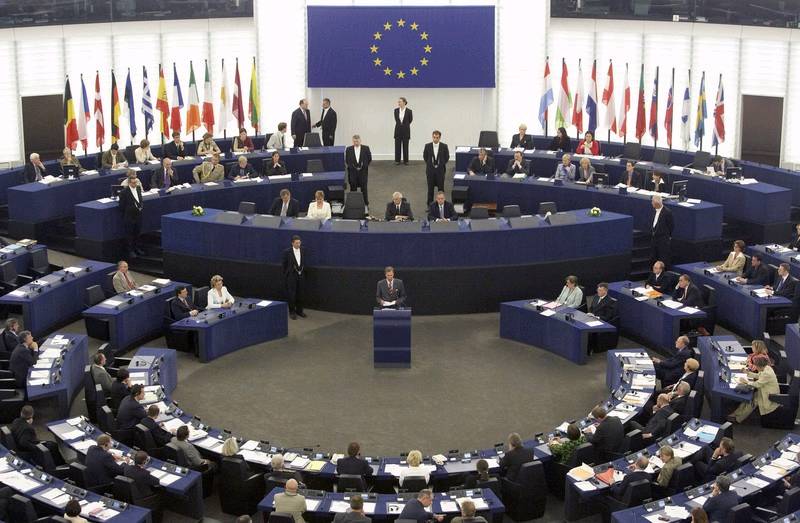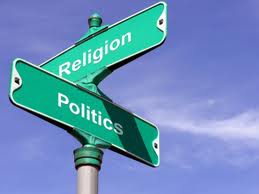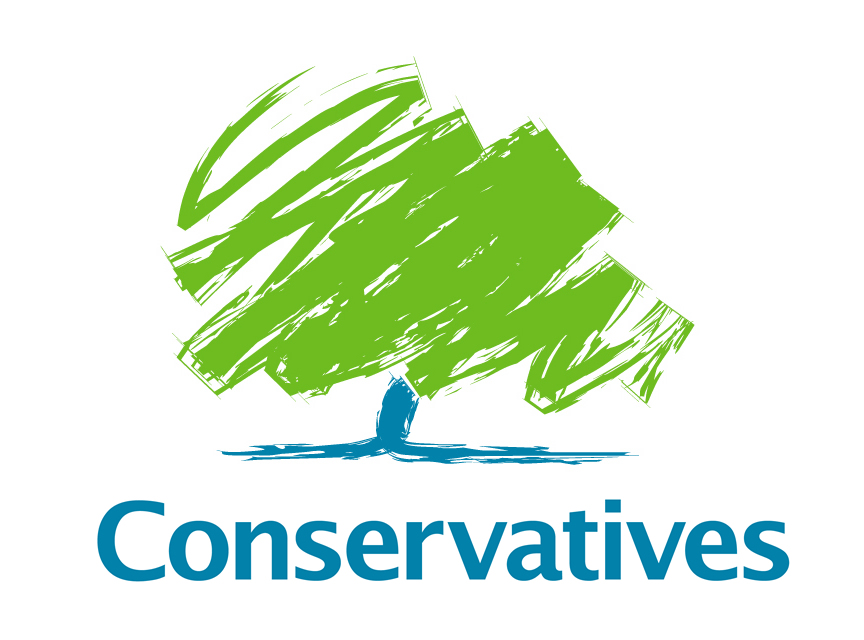 The British press is a venerable and revered institution, championing the public interest with an incessant determination to root out truth and expose corruption wherever it may be found.
The British press is a venerable and revered institution, championing the public interest with an incessant determination to root out truth and expose corruption wherever it may be found. Except, of course, it isn't. It is, to be blunt, a seething, vested-interest-ridden cacophony of noise; a slew of papers and jumped-up magazines all vying to make as much money as humanly possible whilst putting out their own political and social agenda forward, often in bald denial of objective fact. Let's take a look at the major players and analyse just what it is that makes these people tick. I'll start with the tabloids, for no other reason than to get as much of the real vitriol out of the way early on.
The Sun/The Sun on Sunday
Archetypal British tabloid, The Sun is owned by a subsidiary of News Corporation. That means Murdoch, ladies and gents. As such, the paper's political affiliation is somewhat fluid - it follows, in essence, the preferences of Rupert Murdoch himself at any given election. It supported Labour until 1979, when it came out for the radically rightist Thatcher-led Conservative Party. It carried on as an ardent fan of the Iron Lady right until the end, and lent its support to her successor John Major as well at first. However, in 1997 the paper swung back to Labour, before returning once more to the Tory fold in 2009. The Sun is typical of the tabloid media - sensationalist, frequently offensive and constantly the target of libel cases and other scandals. It should also be remembered that its sister paper, The News of the World, was closed down as a result of the appalling phone-hacking scandal in 2011. This is a paper stuffed full of sex, gossip and tasteless humour, with very little to recommend it - unless you like insidious right-wing propaganda disguised as cheap entertainment, of course. My verdict: Avoid like the plague
The Daily Mirror/The Sunday Mirror
Older than The Sun, and responsible for creating many of the tropes of the tabloid genre,The Daily Mirror is essentially the left-wing equivalent of The Sun. It has backed the Labour Party consistently since the end of the Second World War. Owned by Trinity Mirror, the UK's largest newspaper group, The Mirror is sensationalist and, like most tabloids, has a very low text-to-image ratio. Its own brand of humour is scarcely more palatable than The Sun's and it too has been afflicted by libel cases aplenty. But at least it's not owned by Murdoch.
My verdict: Avoid if at all possible
The Daily Star/The Daily Star Sunday
The Daily Star is a relatively new tabloid, first published in 1978. It keeps largely out of politics, but has on occasion voiced support for right-wing and far-right organisations - most notably the EDL in 2011. This 'paper' is concerned primarily with celebrity gossip and sports news - with the obligatory naked model thrown in. It is owned by Northern & Shell, which also owns The Express.
My verdict: Avoid, for no other reason that it contains NO NEWS
The Morning Star
The most left-wing national newspaper by quite some distance, The Morning Star is owned by the People's Press Printing Society, a cooperative group with strong connections to the Communist Party of Britain. It advocates very strongly the socialist programme of the CPB, though it supported Labour at the 2010 general election on the pragmatic basis that the CPB was highly unlikely to win any seats, and is a supporter of the trade unions.
My verdict: Worth a read, but VERY biased
That's the traditional red-tops dealt with - the tabloids that accept they are tabloids, and move on. The next two are sadly in denial as to their tabloid status, and insist on masquerading as broadsheets. All the more reason to lay into them!
The Daily Mail/The Mail on Sunday
Anyone who knows me will know that my dislike for this particular rag is legendary. Owned by DMGT, Lord Rothermere's media company, The Mail is a firmly right-wing paper and consistently supports the Conservative Party, though it has sympathies for UKIP. The paper is highly critical of the BBC, immigration, the welfare state, the Labour Party, the EU and just about everything else that doesn't date back to at least the 1850s. Having felt the wrath of libel scandals as much as its red-top cousins, and using as it does the same sensationalist headlining styles as they do, it is quite clear that this paper is no broadsheet, and it does not hide its overt bias.
My verdict: Avoid if you have any spark of human decency within you
The Daily Express/The Sunday Express
As I mentioned earlier, The Express is owned by Richard Desmond's Northern & Shell and subscribes to pretty much the same right-wing stance as The Mail. It supported Labour in 2001, but the Tories in every other election since 1945. It is also very Eurosceptic, launching a 'crusade for freedom' campaign in 2011 aimed at persuading David Cameron to withdraw the UK from the EU. It is also famously obsessed with Princess Diana, particularly with regards to conspiracy theories surrounding her death, which seem to be a weekly feature.
My verdict: Avoid. Please
Huzzah! That's the tabloids done with! Thank Osiris for that... Even writing about that lot exhausts me. Fortunately, the UK's crop of broadsheet newspapers are actually not too awful. Don't worry, though - I've enough residual anger left to pick out their flaws with joyous abandon!
The Times/The Sunday Times
I thought I'd start with this one, seeing as I dislike it the most. The reason for that is basically because its another of Murdoch's ventures, and that man has FAR too much power over the British (and Australian) media. In fact, I might even write a whole post about it... But I digress. The Times has been going since 1785, so it's got a fairly decent pedigree. Its political allegiance has mainly been Tory, apart from a brief fling with Blair's New Labour in 2001 and 2005. News content in The Times is usually good, with little bias - although subtle right-wing phrasing can sometimes be discerned; the paper has on several occasions referred to persons accused of terrorism as 'terrorists' without any trial having taken place, for example. My verdict: Readable, but avoid if possible to annoy Murdoch
The Financial Times
The Financial Times is politically relatively centrist, but it subscribes to neoliberal economic theory and thus has an implied tendency towards the right. Focused on business and economics, it nevertheless provides adequate coverage of most major news topics and is unbiased on non-economic matters. Its political support varies - most recently it endorsed the Liberal Democrats, but it has supported all three major UK parties in the past. Being an international paper, it also supports Obama's Democrat administration in the USA. The Financial Times is owned by Pearson, the largest publishing company in the world.
My verdict: Tough going at times but readable
The Daily Telegraph/The Sunday Telegraph
The Telegraph is a centre-right paper, owned by the Barclay Brother's Press Holdings company. It consistently supports the Conservative party and takes a socially conservative, economically liberal position on most issues. Responsible for the bringing to light of the MPs' expenses scandal in 2009, it nonetheless generally favours the status quo. Its right-wing bias is obvious and it it can be justifiably accused of being elitist. Its sports editor is evidently a cricket fan.
My verdict: Decent paper provided you factor in its right-wing bias
The Guardian/The Observer
The Guardian and its sister paper are the papers of the liberal centre-left. Among their more radical opinions is support for the abolition of the monarchy - generally, however, they remain firmly the province of middle-class leftism. Usually Labour-supporting, they favoured the Liberal Democrats at the last general election. Their news coverage is relatively unbiased, although a clear liberal slant on many issues is discernible and their opposition to UKIP is made very clear. Owned by the Scott Trust, The Guardian and The Observer are lauded for their commitment to ethical practices - but lambasted for their famously shocking grammar and spelling.
My verdict: My favourite paper; Excellent, again provided the bias is factored in
The Independent/The Independent on Sunday
There's not a great deal to say about The Independent - it does what it says on the tin. It does not support any political party and its comment sections play host to a wide range of views. Part of the growing media empire of Russian business man Alexander Lebedev, The Independent is generally centre-left on social issues and centre-right on economic questions, placing it pretty much in the centre of public opinion in the UK.
My verdict: Excellent paper with varied opinion pieces
So, there we are. That's a quick lowdown on the biggest names in the British press right now. Honourable mentions must go to left-wing comment magazine the New Statesman and its right-wing equivalent the Spectator, both of which are worth a read, as well as The Huffington Post online newspaper, which presents news and comment in easily digestible formats. I hope this has been of some use to you, or - failing that - at least some entertainment.
And please, for the love of all that is good and pure in the world, don't read The Daily Mail...










